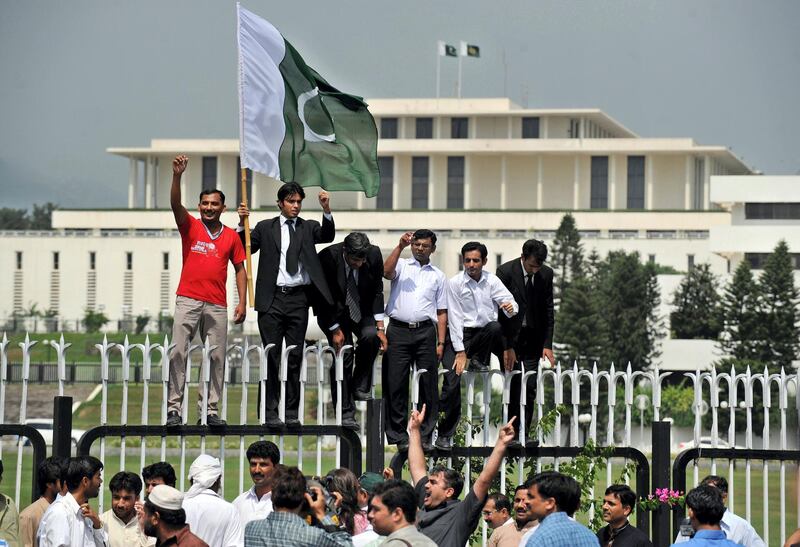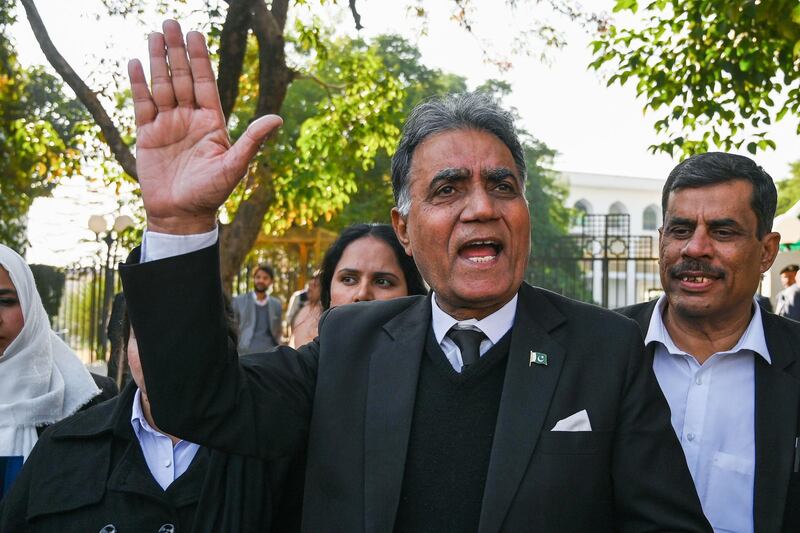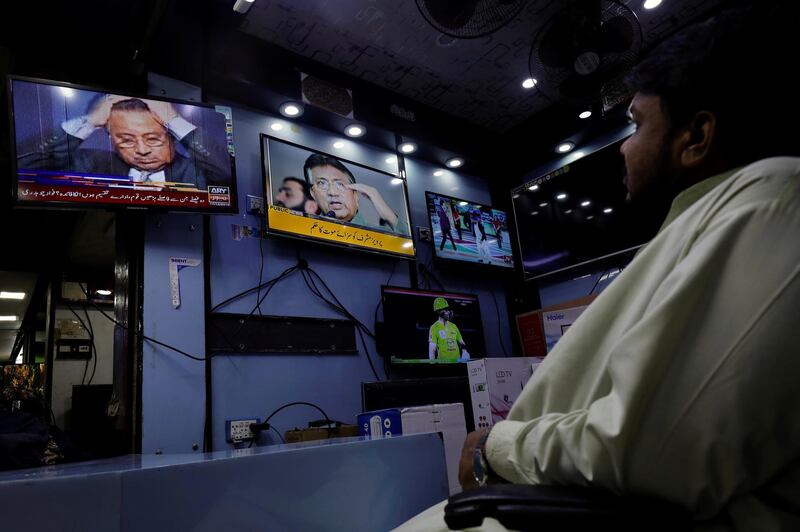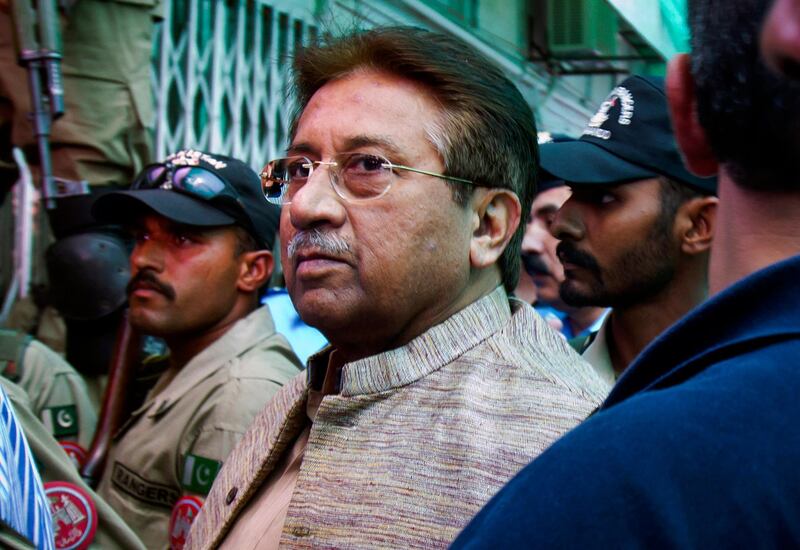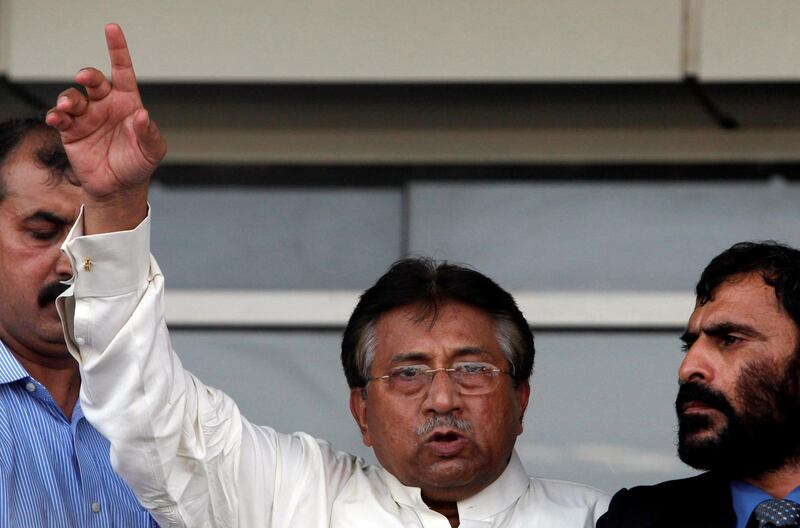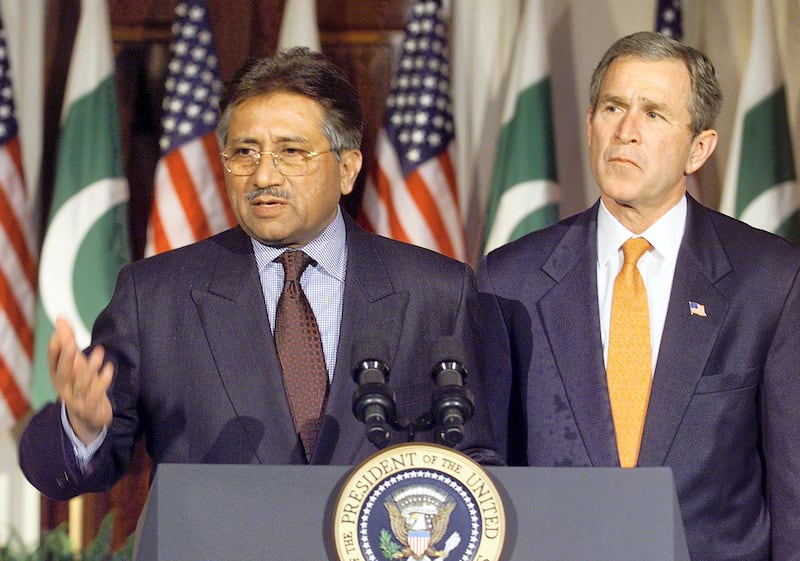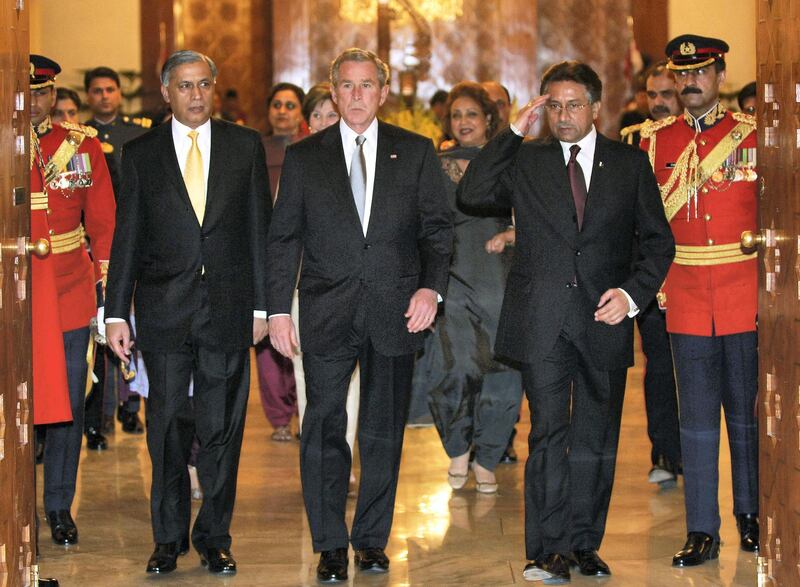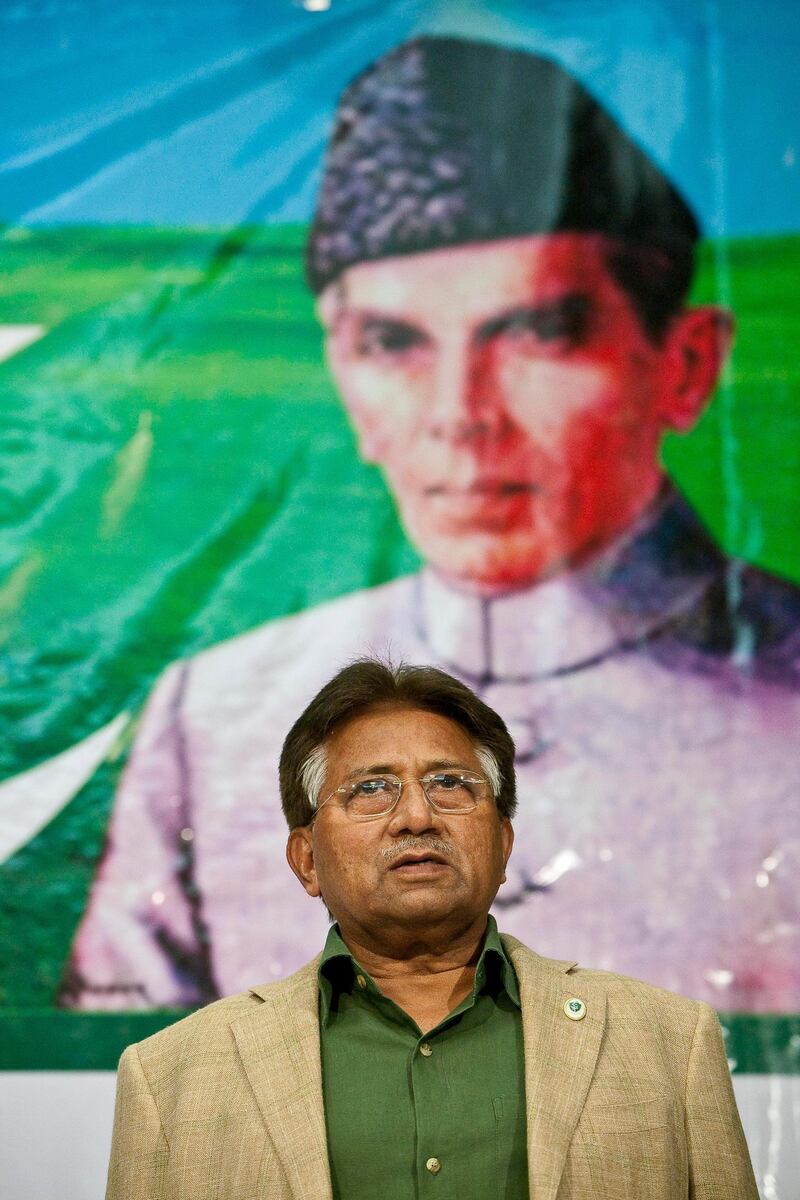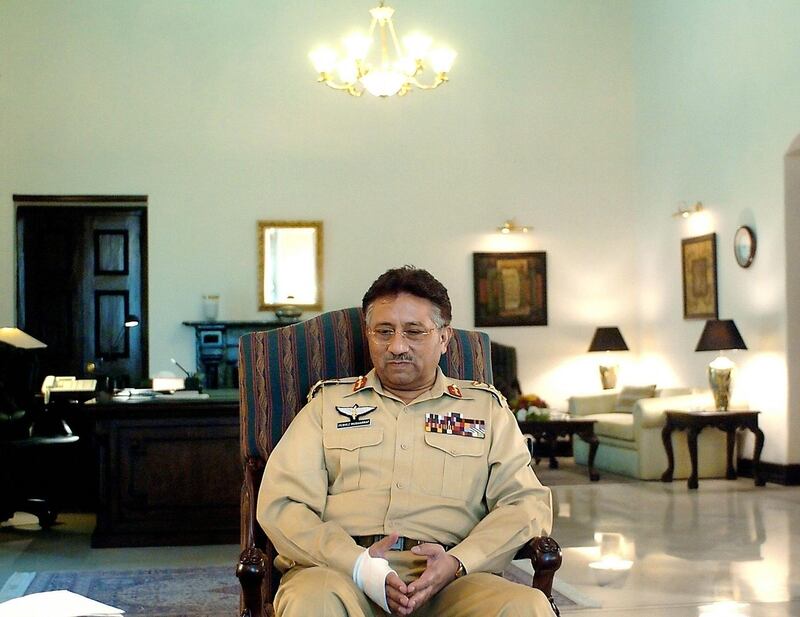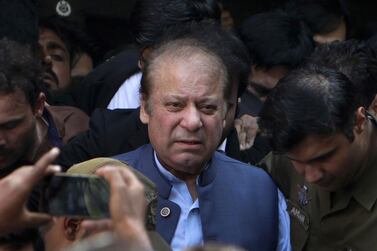Former military dictator and president Pervez Musharraf has been sentenced to death for high treason for suspending the country's constitution, in an unprecedented legal ruling.
The former army chief was convicted in a two-to-one ruling by a special court for imposing emergency rule and setting aside the constitution in 2007.
It was the first time in Pakistan’s 72-year history that a military ruler was tried for high treason.
Musharraf was convicted in his absence having fled to Dubai in 2016 to seek medical treatment.
Analysts said he was likely to appeal and his self-imposed exile meant it was unlikely any sentence would ever be imposed.
But the verdict was still hailed as significant for civilian rule in a country where the military has staged several coups and remains the strongest institution.
"Pervez Musharraf has been found guilty of Article 6 for violation of the constitution of Pakistan," government law officer Salman Nadeem said.
The government of Prime Minister Imran Khan, which is considered to be closely aligned to the military, refused to comment immediately on the verdict.
The government last month tried to force the court to delay its ruling.
There was also no immediate reaction from Musharraf, but in a video recorded from a hospital bed this month, he denounced the charges.
"My health is very poor from the start," he said. "I have been in and out of the hospital under the supervision of doctors.
“This case in my view is absolutely baseless because leaving aside [the charge of] being a traitor, I have served my country. I have fought wars.
“In this case I’m not being heard. My lawyer is not being heard. In my view, this is an injustice. The procedures of justice are not being followed."
But the ruling was welcomed by opposition politicians.
“With this, hopefully in the future the tradition of breaking the constitution will end," said Ahsan Iqbal, general secretary of the Pakistan Muslim League opposition party.
Musharraf's supporters in the UAE rejected the verdict as one-sided.
“We don’t accept this judgment,” said Malik Mubashir, president of Youth Wing of the All Pakistan Muslim League UAE. "How can a court give a verdict without listening to him or his lawyer.
Mr Mubashir said the party had released the video clip of Musharraf from the Dubai hospital bed.
“A judge must listen to both sides. How can a general who fought for his country three times be accused like this? What kind of justice is this?” he asked.
Musharraf remains in hospital, Mr Mubashir said on Tuesday evening.
“His health is not good and he requires constant medication but he is ready to give a statement to the court,” he said.
Zahid Hussain, a political analyst and columnist, told Dawn newspaper: "The military has dominated politics here for over three decades and this verdict is bound to have far-reaching implications.
“There won't be an actual sentencing because Musharraf is not in Pakistan, but that doesn't take away from the fact that this is a landmark, historic verdict."
Musharraf, was born in India's capital New Delhi but moved with his family to Pakistan at partition and rose through the ranks of the army, spending time as a special forces officer.
As army chief, he toppled the civilian government of prime minister Nawaz Sharif in 1999 and later became the country’s military president.
A cigar-smoking, whisky-drinking moderate, the general became a key US ally in the "war on terror", helping US forces to hunt Al Qaeda terrorists and allowing Nato to use Pakistan as a supply corridor to Afghanistan.
But Mussarraf alienated both sides of politics, angering the religious right for his alliance with the US and the left for his constitutional abuses.
When he tried to sack the chief justice in March 2007, he sparked months of nationwide protests and turmoil that led him to impose a state of emergency that year.
Civil liberties, human rights and democratic processes were suspended, from November 2007 to February 2008.
He resigned later in 2008 to avoid impeachment, after a political party that backed him fared poorly in a general election. He has since spent most of his time in Dubai and London.
Musharraf is also alleged to have been part of a broad conspiracy to have his political rival, Benazir Bhutto, killed before elections. He has denied the allegation.
In 2017, a Pakistani court pronounced Musharraf a fugitive in the murder trial of Bhutto and ordered the confiscation of his property.
After the court's decision Tuesday, Bhutto's son Bilawal Bhutto Zardari said: "Democracy is the best revenge."
